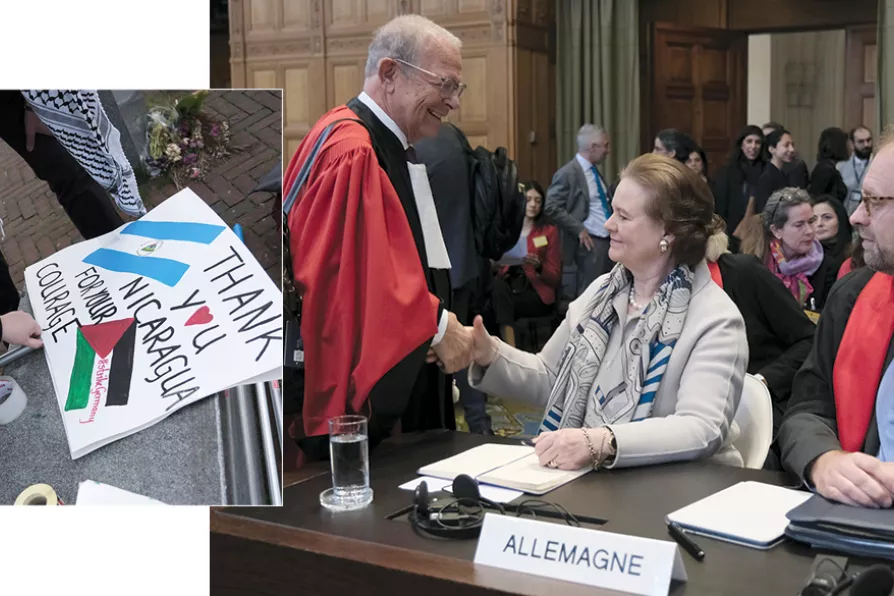Data on regional deprivation in England shows us an unequal society, but what to do about it remains unanswered argue ROX MIDDLETON, LIAM SHAW and MIRIAM GAUNTLETT

 PUTTING A GOOD FACE TO A BAD GAME: (Right) Tania von Uslar-Gleichen, Germany’s legal adviser and director-general for Legal Affairs of the German Foreign Ministry with Alain Pellet, a lawyer representing Nicaragua. Pellet is an expert in international law and a member and former president of the United Nations International Law Commission; (left) vox populi, vox Dei
PUTTING A GOOD FACE TO A BAD GAME: (Right) Tania von Uslar-Gleichen, Germany’s legal adviser and director-general for Legal Affairs of the German Foreign Ministry with Alain Pellet, a lawyer representing Nicaragua. Pellet is an expert in international law and a member and former president of the United Nations International Law Commission; (left) vox populi, vox Dei
THE German government’s appearance before the International Court of Justice in the proceedings for aiding and abetting genocide and violations of international humanitarian law in Gaza is a lesson in Western double standards. On April 8 and 9, Germany sat in the dock in The Hague after Nicaragua filed a case at the highest UN judicial body.
The 43-page document accuses Germany of failing to fulfil its obligations under the Genocide Convention to prevent genocide. Essentially, Germany is accused of aiding and abetting genocide and violating international humanitarian law with its political, financial, and military support for Israel as well as by ceasing to fund the UN Relief and Works Agency for Palestine Refugees (UNRWA). In view of the urgency of the situation, Nicaragua requested five interim measures to prevent the facilitation of genocide. These include the demand that Germany stop supplying arms to Israel and resume payments to UNRWA to ensure sufficient humanitarian aid for the Palestinian population.
Does arming a state committing genocide make you an accomplice?
The arguments put forward by the German government in its defence were unconvincing. With a flood of Powerpoint slides, the German representation initially tried to play down the significance of Germany’s arms deliveries to Israel.
It argued that the majority of the arms export licences issued after October 7 were for so-called “other military equipment” (“sonstige Rustungsguter”) and only a relatively small proportion for so-called “weapons of war” (“Kriegswaffen”). This was an attempt to deceive the court and the public.
What the German defence failed to mention was the fact that this invented distinction between “other military equipment” and “weapons of war” is a specific feature of German arms export control. Contrary to what the terminology suggests, the category of “other military equipment” can also include weapons that can be used for warfare.
Germany is Israel’s second-largest arms supplier after the US. According to data from the Stockholm International Peace Research Institute (SIPRI), German weapons have accounted for 30 per cent of Israeli arms imports in the last five years. Licences for new arms exports also increased in 2023.

Washington and its Western allies decry human rights abuses while arming and shielding Israel, turning contradiction into policy, argues RAMZY BAROUD

Over 30 nations to gather in Colombia to bring a halt to the genocide in Gaza

ANSELM ELDERGILL draws attention to a legal case on Tuesday in which a human rights group is challenging the government’s decision to allow the sale of weapons used against Palestinians











